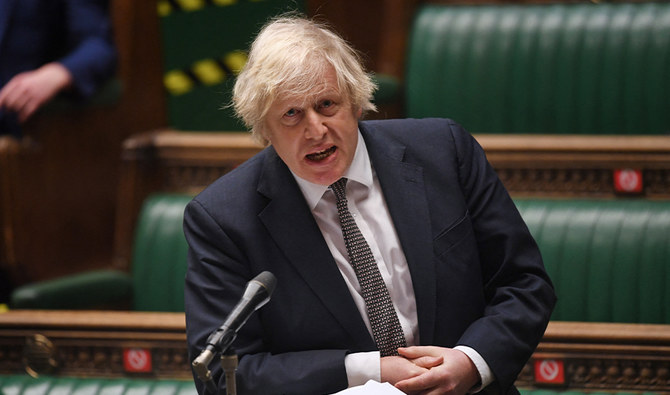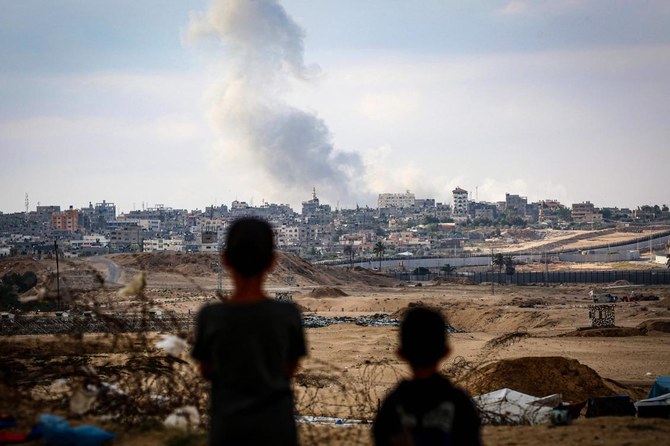RIYADH: The British prime minister has said the government would look at sending troops to Yemen if the conditions were right.
Boris Johnson said the situation would have to be very different before British military involvement would be considered.
“There has been no specific request or suggestion for UK engagement, but it is certainly something that we would be prepared to look at if the conditions were right,” Johnson said during an appearance in front of the foreign affairs committee.
The conflict began when Houthi militia, who are backed by Iran, ousted the government from power in the capital Sanaa in 2014.
Saudi Arabia on Monday announced a wide-ranging initiative to help Yemeni factions reach a peaceful resolution to a conflict that has now raged for six years. The plan, which calls for a nationwide ceasefire, has garnered widespread support.
Johnson said the ceasefire was encouraging and he hoped it would lead to “serious political progress” and that there was now an opportunity to go further.
The comments followed a question from the Conservative chair of the committee, Tobias Ellwood, who asked if Johnson would commit to sending forces to help stabilize the war-torn nation.
UN Secretary-General Antonio Guterres on Tuesday welcomed the Saudi initiative and urged all sides to take the opportunity to pursue peace.
The UN on Wednesday also praised the Yemeni government for allowing four fuel ships into Hodeidah port.
In recent weeks, the Houthis have intensified missile and drone attacks on the Kingdom, sparking condemnation from regional and international allies.
Yemeni Prime Minister Maeen Abdulmalik said the new Saudi initiative would show the Yemeni people which party refuses to end the war. “[They] face a real confrontation with the Yemeni people and the international community, to expose those who reject all peace efforts and insist on the continuation of war,” he told Asharq Al-Awsat newspaper.
Rajih Badi, a Yemeni government spokesman, said the militia sees the call to de-escalate as the “language of weakness” and said the Yemeni people will not accept Iranian interference in their country.
In a costly military quagmire in Yemen’s central province of Marib, the militia have seen their month-long offensive stalled and have not been able to recapture the province's capital and with it its oil and gas fields.
The military deadlock has prompted the rebels into shifting their goal from taking Marib city to potentially using the offensive as a bargaining chip in future peace talks, Yemeni experts say.
“While the Houthis initially had momentum in their offensive on Marib, the battle has descended into a familiar stalemate,” Samuel Ramani, an international relations researcher at Oxford University, told Arab News.
The militia have also been accused by Human Rights Watch of firing artillery and missiles into heavily populated areas in Yemen’s Marib governorate since February.
Earlier this month, 45 people died at a migrants detention center in the Houthi-controlled capital, when guards caused a fire while suppressing a protest against mistreatment. The bungled attempt has been widely denounced.
The UK’s ambassador to Yemen, Michael Aron, condemned Houthi treatment of migrants which lead and demanded “A credible, transparent, independent investigation must be carried out, including a full account of those killed & injured.”




















